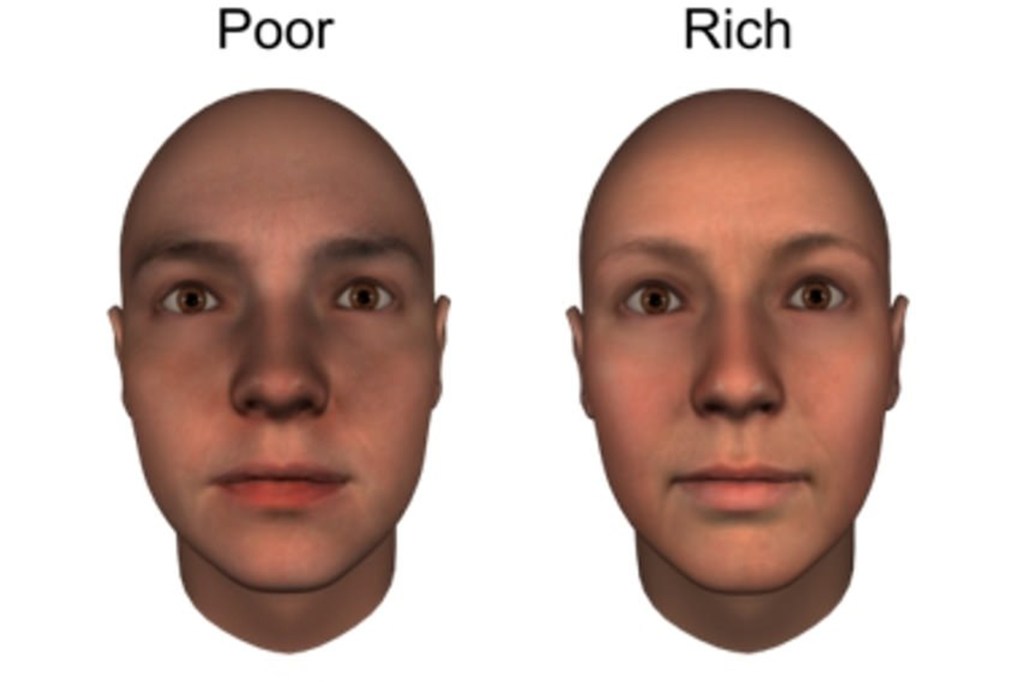Do you look rich or poor? Study reveals how your face can determine wealth
You may have been told you have a poker face — but might you have a money face?
A new study from the University of Glasgow surveyed people about what makes someone look rich, according to snap superficial judgements.
The study, carried out with white participants from Western cultures, determined what facial features were associated with being in high or low social standing — based on people’s perception alone.
The findings, published in the APA Journal of Experimental Psychology, determined that people with more narrow faces, smiley upturned mouths, raised brows, closely-spaced eyes and a light, warmer complexion looked wealthier.
People also associated these facial features with trustworthiness, competence and warmth.
Meanwhile, people with wider, shorter and flatter faces as well as downturned mouths and cooler complexions were viewed as lower class, less trustworthy and incompetent.
While not mentioned in the study, Facebook CEO Mark Zuckerberg and Amazon CEO Jess Bezos, who are both billionaires, have some of the features mentioned in the study. Zuckerberg has a narrow face and Bezos has a warm, ruddy complexion.
The study authors commented on how judgements on appearance can lead to detrimental consequences.
“People who are perceived to be of high or low social class standing are also often judged as having advantageous or unfavourable traits, respectively. Such judgements are formed even just from facial appearance, and this can have substantial downstream consequences, including disadvantaging those who are perceived to be of lower social class standing,” study author Dr. R. Thora Bjornsdottir said in a press release.
“The results suggest that social class stereotypes explain the link between facial appearance and judgements of individuals’ social class standing. This highlights that the stereotypes we hold are consequential for how we perceive others – they bias our perceptions. Our impressions of other people can then lead to particular advantages or disadvantages for them,” she added.
Prof Rachael E. Jack, professor of Computational Social Cognition, said he hopes the study can point to people’s biases to prevent them from occurring in the future.
“Our research demonstrates how specific facial attributes play a pivotal role in connecting social class perceptions with related stereotypes. These findings are not only valuable for advancing our understanding of central social perception theories, but could also help with future interventions designed to interrupt biased perceptions,” he said.
This isn’t the only study that’s attempted to judge someone’s wealth by looking at their face.
A 2017 study from the University of Toronto, published in the Journal of Personality and Social Psychology, found that people’s faces may reveal whether they’re rich or poor. This study involved guessing the wealth of real people based on photographs, and the study participants guessed with 53 % accuracy.
“Over time, your face comes to permanently reflect and reveal your experiences,” said study co-author Nicholas Rule. “Even when we think we’re not expressing something, relics of those emotions are still there.”













